In the span of a week, the whirlwind of executive orders and announcements regarding President Donald Trump’s full-court press on immigration have sent shockwaves through the undocumented community of Santa Barbara County. Almost overnight, tens of thousands of the county’s working-class immigrants — agricultural workers, cooks, cleaners, landscapers, construction workers, and caretakers — faced a new level of fear, panic, and uncertainty over the prospect of deportation.
On social media, unconfirmed rumors of U.S. Immigrations and Customs Enforcement (ICE) agents in Santa Barbara’s Eastside neighborhoods began circulating, while actual Border Patrol raids were being conducted 150 miles away in the Central Valley, where at least 78 workers were rounded up in unmarked SUVs and taken into custody. Of those 78 people swept up across the three-day operation in Bakersfield — called “Operation: Return to Sender” — only two individuals were found with active arrest warrants.
Fight Panic with Power
Hazel Davalos, co-executive director of the Central Coast Alliance United for a Sustainable Economy (CAUSE), is just one of many on the front lines of the current battle over immigration. Along with 805UndocuFund, IMPORTA SB, Immigrant Legal Defense Center, and La Casa de la Raza, CAUSE is ensuring the estimated 44,000 undocumented residents of Santa Barbara have every resource they need to be educated and prepared for whatever impacts may come their way.
“We as a community have an opportunity to fight back, and fight panic with power,” Davalos said.
Many of the fears and anxieties, she said, come from the brazenness of Trump’s most recent policy announcements and uncertainty over whether longstanding protections will be enough to prevent people from facing customs enforcement.
“Whether it’s [Trump’s] proposal of revoking birthright citizenship, declaring schools and hospitals as fair game for ICE raids, or passing the Laken Riley Act, there seems to be no regard for constitutionality, past norms, or due process,” Davalos told the Independent.
“People should know that we need to take these announcements seriously,” she added. “We should get informed about our rights and how to be allies to undocumented folks — in particular at the workplace — since he’s proposed workplace raids as a preferred approach.”
Some of the proposed methods of immigration enforcement, like workplace raids and the revoking of birthright citizenship, have already been or are likely to be challenged by the courts. But another battle will be over information, and ensuring that schools, hospitals, and other resource centers are on the ground providing up-to-date training about what to do when encountering immigration enforcement.
“School districts and hospitals should take steps towards training their staff on what to do when ICE attempts to enter their facilities,” Davalos said. “There is so much power in refusing to open your door and requesting to see a warrant signed by a judge.”
Know Your Rights
Schools, churches, and hospitals have traditionally been treated as safe spaces where federal enforcement couldn’t enter. But on Inauguration Day, the Trump administration announced it would allow immigration agencies to make arrests at these locations — ending a policy that has protected these areas since 2011.
This change has caused even more confusion, forcing some families to keep their kids from schools or avoid doctor’s appointments out of fear. But advocates for the undocumented community have been adamant that, while law enforcement can now make arrests at these locations, they cannot enter a property without proper warrants.
During this time, Davalos says, it’s important that people don’t just react out of moments of panic and fear. “When we’re in a state of panic, we don’t think clearly,” she said. “This is a time we need to take extreme precaution.”
This came into play when, earlier this week, rumors spread online about ICE vehicles being spotted near Milpas Street in Santa Barbara. The reports were found to be unsubstantiated, and Congressmember Salud Carbajal’s office confirmed that there was no presence here in the city.
In response, CAUSE and 805UndocuFund are encouraging community members to become volunteer dispatchers and community observers to help verify ICE sightings on the Central Coast. Using the Rapid Response Hotline (805) 870-8855, the public can report activity in Santa Barbara, San Luis Obispo, and Ventura counties, and trained volunteers will visit the location to confirm the reports.
By confirming the ICE reports, advocates hope they can prevent people from spreading unnecessary panic.
“In my experience as a community leader and working for our local schools, the most helpful action we can do as a community during this time is to not create unnecessary stress, fear, or anxiety,” said Alejandra Gutierrez, a former city councilmember and longtime advocate for Santa Barbara’s Latino community. “We have to keep in mind that people need to go to work and to go to school.”
Collateral Damage
Fears about immigration enforcement have already impacted workplaces around the Central Coast. Following the Bakersfield raids, some farmworkers in Santa Barbara County stopped showing up to work, and some parents have kept their children from going to school.
This could have a far-reaching impact on the agricultural industry, which produces an estimated $1.9 billion in revenue for the local economy.
“We will certainly see an impact on the agricultural economy whether workers don’t come to work out of fear or because of deportation,” Davalos said. “This situation highlights the fragile and unsustainable nature of the agricultural industry. Growers have only been able to attract undocumented labor due to low wages and high risks.”
In an attempt to alleviate fears over Trump’s deportation agenda, California Attorney General Rob Bonta issued a series of statements in response to the recent wave of immigration-related orders, with Bonta saying: “The President cannot bully California into carrying out his mass deportation agenda for him.”
“This is a scare tactic, plain and simple,” Bonta said. “The President is attempting to intimidate and bully state and local law enforcement into carrying out his mass deportation agenda for him.”
Bonta echoed what many county and city law enforcement agencies have been saying since the announcement of Trump’s immigration agenda, relying on the guidelines set forth by 2017 State Bill 54 (SB54), which is clear that state and local law enforcement are prohibited from using taxpayer funds to enforce immigration law.

In an interview with SB Newsmakers’ Jerry Roberts this week, Santa Barbara Sheriff Bill Brown spoke about how the flurry of executive orders, rumors of ICE raids, and questions over local law enforcement’s level of cooperation have made the current climate more difficult to navigate.
The Santa Barbara County Sheriff’s Office, Sheriff Brown said, does not assist in immigration enforcement, and deputies are not allowed to ask about immigration status as part of normal investigations. But nationwide policies and guidelines are changing by the minute, and Sheriff Brown says this has put him “between a rock and a hard spot“ in his national position as president of the Major County Sheriff’s Association of America (MCSA).
Sheriff Brown wanted to be clear that — at least during the early stages of Trump’s deportation plan — immigration enforcement will be focused on those that have been convicted of committing serious crimes beyond just crossing the border. But in the rush to sweep up those with verified convictions, there is a chance of “collateral arrests” of others who may not have been deported in other circumstances.
For those facing potential immigration enforcement, there are two major resources in the region assisting with legal issues. The Immigrant Legal Defense Center represents those currently facing deportation proceedings, while IMPORTA SB provides Department of Justice–accredited representatives to help longtime residents with navigating the labyrinthine process toward legal citizenship.
Maria Frias, one of 11 IMPORTA SB staff members, says that the organization has been closely monitoring the new administration’s immigration policies since the election. Some of these recent developments, she said, are a major concern — particularly the “random stops of immigrants through racial and ethnic profiling in violation of the Fourth Amendment.”
The Trump administration’s decision to authorize Border Patrol and ICE to make arrests anywhere within the country, and to arrest anybody who cannot immediately prove they have been in the country for two years, could even lead to the expedited removal of legal residents and green card holders without a hearing in front of an immigration judge. For this reason, IMPORTA suggests that it might be better for anybody facing danger of deportation to take a more cautious approach in public areas, regardless of their legal status.
“Although IMPORTA supports the spirit of ‘know your rights’ presentations, we are afraid that given current policies and the history of ICE and the Border Patrol ignoring constitutional protections that these trainings may give immigrants a false sense of security,” Frias said. “This is also true about ‘sanctuaries,’ since the administration has stated that ICE may enter schools, churches, courts, and health care facilities to arrest immigrants.”
IMPORTA representatives also warned people to be wary of “notary fraud,” a popular scam where unauthorized immigration consultants take advantage of people’s fears, only to leave them without actual legal representation and in danger of arrest or deportation.
“Only accredited representatives and highly experienced, ethical immigration attorneys can be relied on not to take advantage of frightened immigrants,” Frias said.
One of these highly experienced legal representatives is Julissa Peña, executive director of the Immigrant Legal Defense Center. She says that Trump’s quick-moving changes to immigration policy are intended to “instill fear and shock across the nation,” signaling the start of a “larger strategy to overhaul U.S. immigration law” even further than the hardline approaches of Trump’s first term — from declaring a national emergency at the border to undoing longstanding legislation to accelerate deportations.
In the coming months, these organizations will partner together to staff the Rapid Response Hotline, and to continue educating the public about the latest changes to immigration policy. And while it is “highly likely” that ICE could make arrests in Santa Barbara County, Peña expects that the Trump administration will encounter “significant logistical and resource challenges” when it comes to the expansion of expedited deportation.
“We’re certain Trump and his team will face fierce resistance from the public,” Peña said. “The fight is far from over, and our community’s resilience will be key in pushing back.”
Premier Events
Sun, Apr 06 11:30 AM
Santa Barbara, CA
Gun Violence Prevention Forum with Asm. Gregg Hart
Thu, Apr 10 10:00 AM
Santa Barbara
Free Dry Eye Seminar w/ Dr. Zucker & Dr. Reynard
Fri, May 23 7:30 PM
Santa Barbara
Songbird: The Singular Tribute to Barbra Streisand
Mon, Mar 31 6:00 PM
Santa Barbara
Cesar Chavez Day Vigil for Migrant Families
Tue, Apr 01 10:00 AM
Santa Barbara
“Is Your Home Safe?” Smart Senior Living Seminars
Tue, Apr 01 1:00 PM
Santa Barbara
“Is Your Home Safe?” Smart Senior Living Seminars
Tue, Apr 01 8:00 PM
Santa Barbara
UCSB Arts & Lectures Presents Ukulele Orchestra of Great Britain
Wed, Apr 02 4:30 PM
Santa Barbara
Spirits in the Air: Potent Potable Poetry
Thu, Apr 03 5:00 PM
Santa Barbara
SBMA Pop-Up Opera
Thu, Apr 03 7:00 PM
Santa Barbara
Aeolus Quartet
Thu, Apr 03 7:00 PM
Santa Barbara
Sax in the City: SB’s Saxiest Dance Party
Fri, Apr 04 10:00 AM
Santa Barbara
Big Bounce America is Bouncing into Santa Barbara
Fri, Apr 04 6:00 PM
Santa Barbara

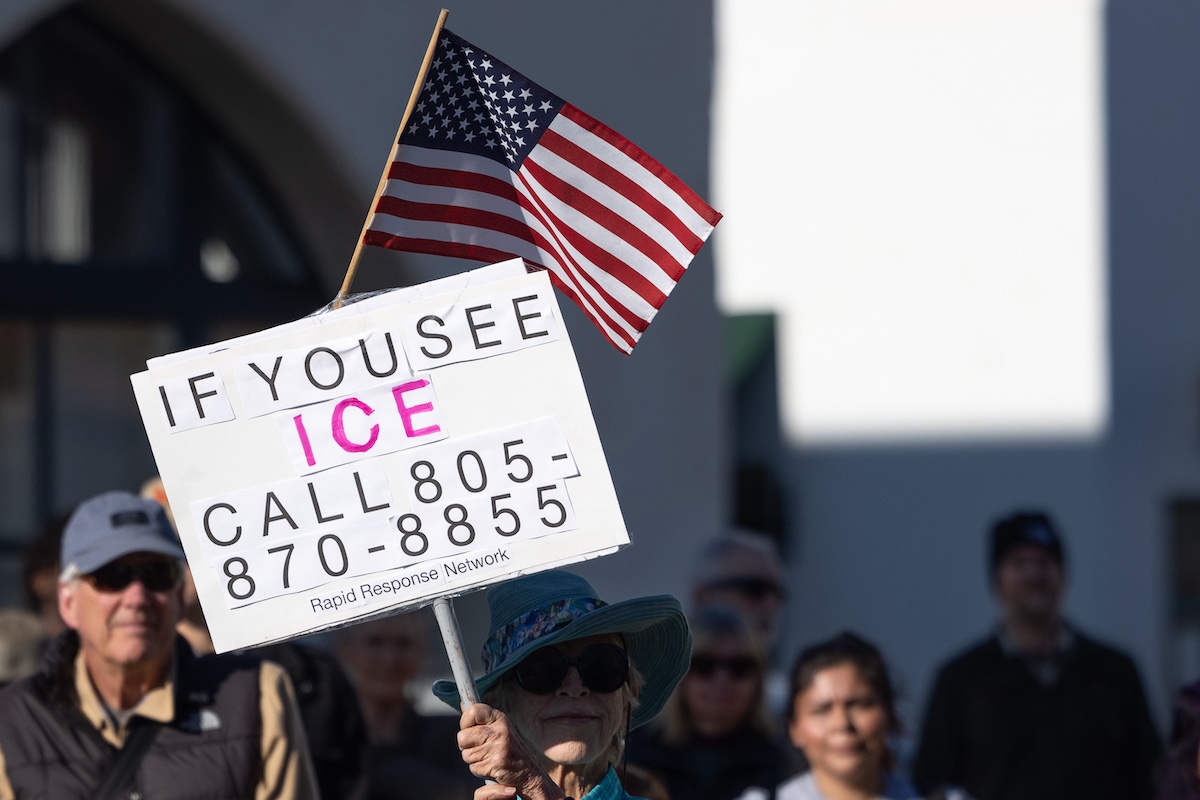
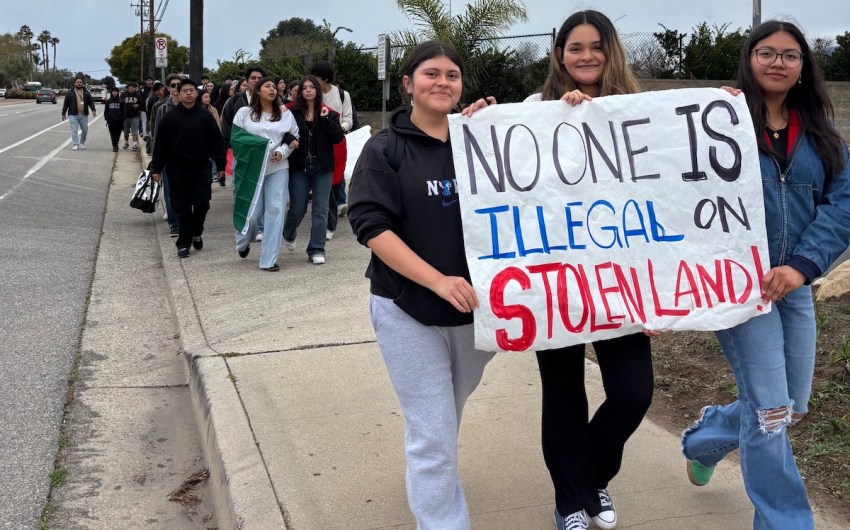

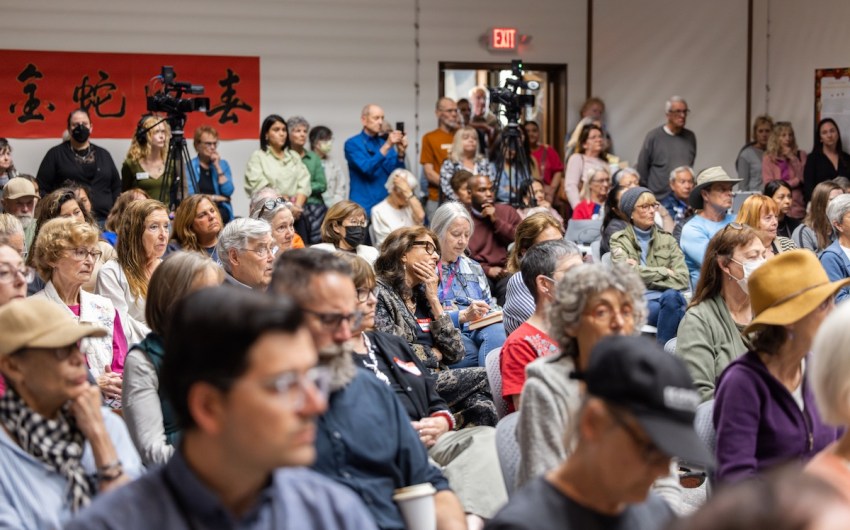
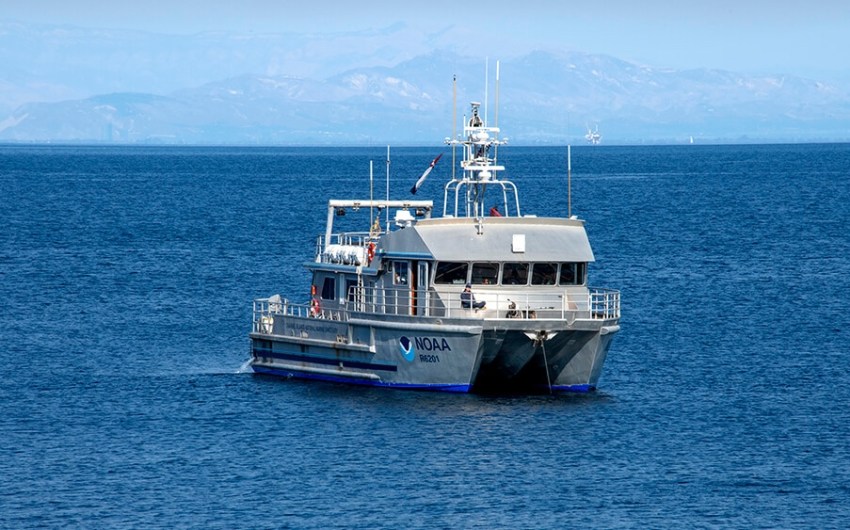







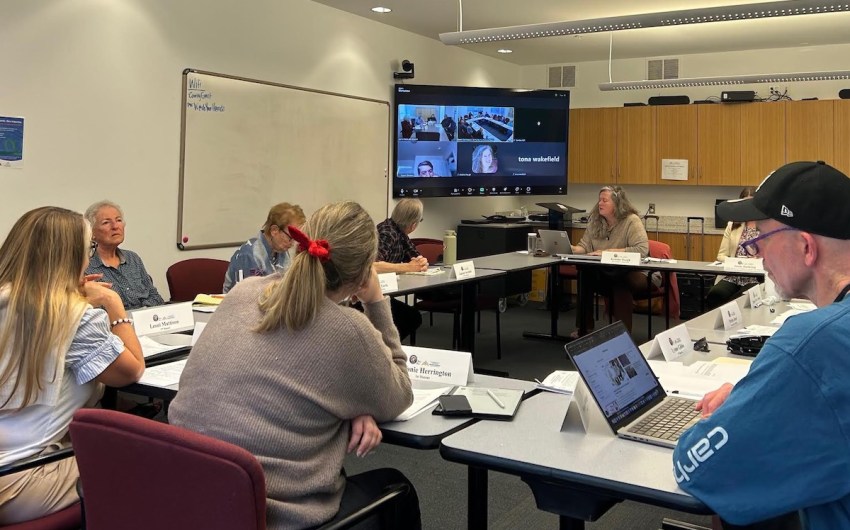












You must be logged in to post a comment.